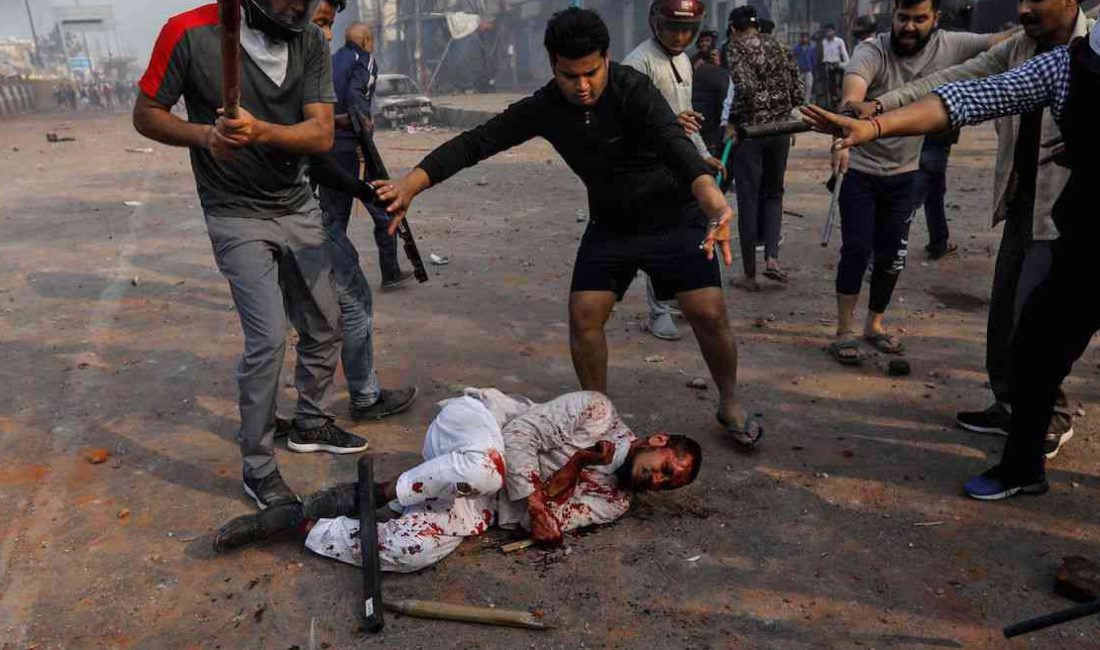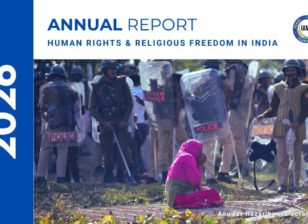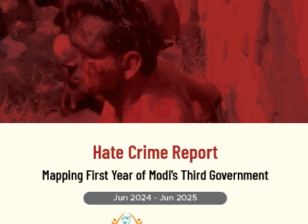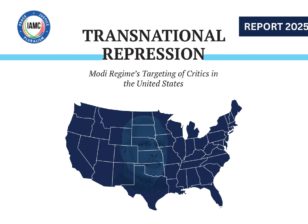US State Department releases scathing report on Religious persecution of minorities in India
Executive Summary
The constitution provides for freedom of conscience and the right of all individuals to freely profess, practice, and propagate religion; mandates a secular state; requires the state to treat all religions impartially; and prohibits discrimination based on religion. It also states that citizens must practice their faith in a way that does not adversely affect public order, morality, or health. Nine of the 28 states have laws restricting religious conversions.
In August the central government revoked the semiautonomous status of the Muslim-majority state of Jammu and Kashmir and split it into two union territories: Jammu and Kashmir, and Ladakh. The revocation sparked protests, criticism from Muslim leaders, and challenges filed in the Supreme Court from opposition politicians, human rights activists, and others. The government sent thousands of additional security forces to the region, shut down many internet and phone lines, and had not restored full service by year’s end. The government also closed most mosques in the area until mid-December.
Seventeen civilians and three security personnel were killed during the protests. In December parliament passed the Citizenship Amendment Act (CAA), which accelerates citizenship for Hindu, Sikh, Buddhist, Jain, Parsi, and Christian migrants from Afghanistan, Bangladesh, and Pakistan who entered the country on or before December 31, 2014, but not for similarly-situated migrants who are Muslims, Jews, atheists, or members of other faiths. The law generated widespread media and religious minority criticism, including legal challenges in the Supreme Court. Protests and violent clashes between protesters and security forces in Uttar Pradesh and Assam following the passage of the law resulted in 25 civilian deaths and hundreds of injuries.

Issues of religiously inspired mob violence, lynching, and communal violence were sometimes denied or ignored by lawmakers, according to a number of nongovernmental organizations (NGOs) and media outlets. There were reports by NGOs that the government sometimes failed to act to prevent or stop mob attacks on religious minorities, marginalized communities, and critics of the government. Some officials of Hindu-majority parties, including from the Bharatiya Janata Party (BJP), made inflammatory public remarks or social media posts against minority communities.
Mob attacks by violent Hindu groups against minority communities, including Muslims, continued throughout the year amid rumors that victims had traded or killed cows for beef. Authorities often failed to prosecute perpetrators of such “cow vigilantism,” which included killings, mob violence, and intimidation. According to some NGOs, authorities often protected perpetrators from prosecution and filed charges against victims. In July Madhya Pradesh became the first state to set fines and prison sentences for cow vigilantism.
Attacks on religious minorities in some cases included allegations of involvement by law enforcement personnel. According to the NGO Persecution Relief, on January 13, police disrupted a worship service in Uttar Pradesh and arrested six people, including the female pastor, who was beaten by the officers. In November the Supreme Court awarded the site of the destroyed Babri Masjid mosque in Ayodhya to Hindu organizations to build a temple there, while providing five acres of land elsewhere in the city for Muslims to build a new mosque. Leading national Muslim organizations and some Muslim litigants petitioned the court to review the decision and permit the mosque, which was destroyed by members of Hindu nationalist organizations in 1992, to be rebuilt on its original site.
In December the Supreme Court dismissed these petitions and maintained its ruling. The government continued its challenge in the Supreme Court to the minority status of Muslim educational institutions, which affords them independence in hiring and curriculum decisions. In November the Supreme Court took up challenges to its 2018 reversal of a ban on females aged 10 to 50 years from entering the Hindu Sabarimala Temple in Kerala.
There were reports of religiously motivated killings, assaults, riots, discrimination, vandalism, and actions restricting the right of individuals to practice and speak about their religious beliefs. According to Ministry of Home Affairs (MHA) data, 7,484 incidents of communal violence took place between 2008 and 2017 in which more than 1,100 people were killed.
MHA data for 2018-2019 was not available, but incidents of communal violence continued through the year. On June 18, a mob in Jharkhand killed Muslim Tabrez Ansari after forcing him to declare allegiance to Hindu deities. NGO Human Rights Watch (HRW) stated that through 2019, Hindu groups characterized as extremist, some of which, according to HRW, had links with BJP supporters, continued to perpetuate mob violence against minorities, especially Muslims, amid rumors they traded or killed cows for beef. According to NGO Hate Crime Watch, 123 incidents of cow-related mob violence, in which Muslims comprised 50 percent of the victims, took place between 2010 and the first half of 2019.
Lower-caste Hindus were also victims of cow vigilantism. Hate Crime Watch reported 10 cow vigilante attacks, with one person killed between January and June. On April 10, Prakash Lakda of Jurmu village in Jharkhand was killed by a mob, and three others seriously injured, reportedly for butchering a dead ox. All four victims were Christians who were Scheduled Tribe members.
On September 22, according to media reports, individuals from Suari Village in the Khunti District of Jharkhand beat three tribal Christians suspected of selling beef in the village market. One died in the hospital, while the other two sustained serious injuries. Media reported that local police arrested several individuals following the attack. Amnesty International (AI) in October recorded 72 incidents of mob violence in the first half of the year, of which 37 were directed at Muslims.
AI recorded 181 alleged hate crime incidents overall in the first half of the year, compared with 100 during the same period in 2018. According to the NGO Persecution Relief’s annual report, 527 incidents of persecution of Christians took place through the year. In August Parvati Devi was killed by her husband’s relatives reportedly because she was a Dalit (lower caste) and the couple had converted to Christianity. In February Anant Ram, a Christian, was taken from his home in Odisha and beheaded.
U.S. government officials underscored the importance of respecting religious freedom and promoting tolerance and mutual respect throughout the year with the ruling and opposition parties, civil society and religious freedom activists, and religious leaders belonging to various faith communities.
In their engagement with government officials, media, interfaith harmony organizations and NGOs, U.S. officials emphasized the need to address the legitimate concerns of the country’s religious minorities, condemn communal rhetoric, and ensure full protection of minorities as guaranteed under the constitution. In March the embassy organized a speaking tour by a U.S. religious harmony expert to the northern cities of Lucknow, Allahabad, and Varanasi.
In late May the Ambassador hosted a Ramadan iftar with leaders from the Muslim, Hindu, Christian, Sikh, Buddhist, and Jewish communities, journalists, and multiple political parties at which he stressed the importance of religious diversity and demonstrating empathy and mutual respect for members of other faiths. In July the Department of State senior bureau official for South and Central Asian Affairs met with religious leaders from multiple faiths and representatives from civil society groups advocating for the rights of religious minorities.
In August the Deputy Secretary of State conducted a roundtable with religious leaders and religious freedom experts to hear their perspectives on conditions in the country. In October the Ambassador at Large for International Religious Freedom, in meetings with senior government officials raised concerns over violence and discrimination against religious and ethnic minorities, including communal violence. He also shared concerns he received from foreign religious leaders and religious institutions about challenges in acquiring visas.
In meetings with religious leaders from multiple faiths and civil society groups, he raised concerns over the treatment of religious minorities, including cow-related lynchings, anticonversion laws, and communal violence. Throughout the year, the U.S. Ambassador to India routinely engaged with religious communities, including representatives of the Buddhist, Christian, Hindu, Jain, Jewish, Muslim, and Sikh faiths, to hear their perspectives and concerns.
Read full report here: https://www.state.gov/wp-content/uploads/2020/06/INDIA-2019-INTERNATIONAL-RELIGIOUS-FREEDOM-REPORT.pdf




